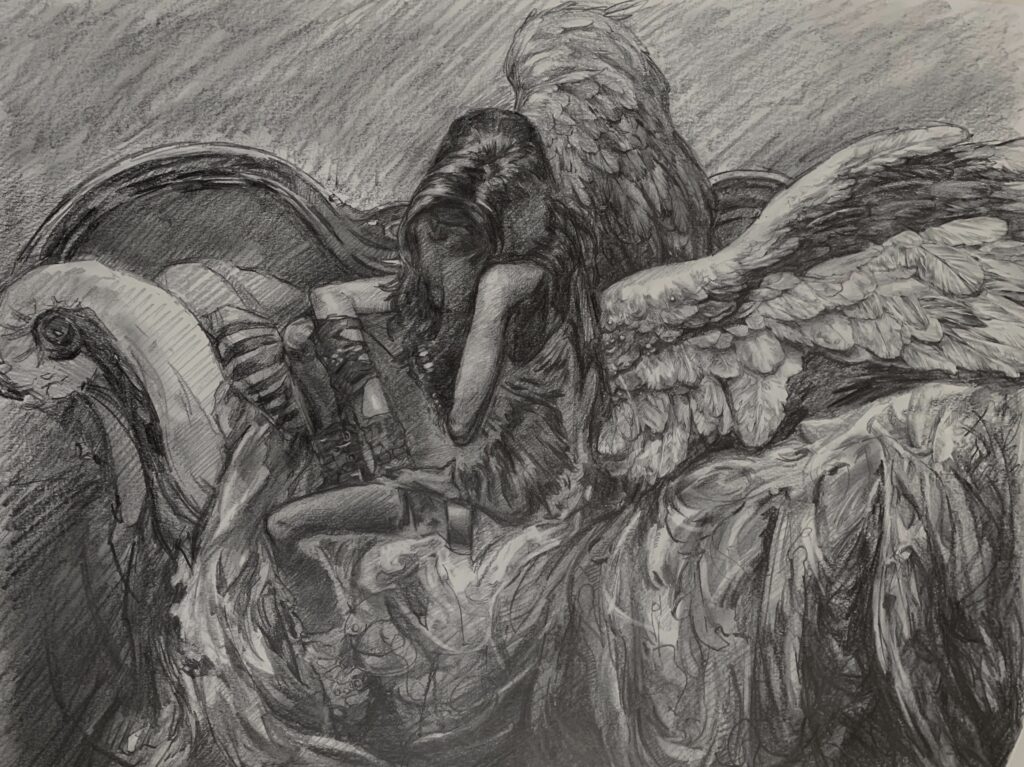The name Nasrullah is Arabic for “victory of God.” It has been in my family since the 18th century, forged in the bustling bazaars of Damascus and the ancient valleys of the Levante. It was always worn with pride, like an emerald ring or a diamond necklace. The name is my family’s connection with their Islamic faith and how we are servants of God. However, a harsh climate in an alien land would soon put this beautiful name into harm and threaten its legacy.
My grandfather was Moen Nasrullah, an established lawyer and the most intelligent man I knew. He and his young family fled Damascus, when a coup d’etat broke out, to the haven of Nashville, Tennessee. There, he had my father, Ahmed Nasrullah. My dad would always question my grandfather about why he has such an ethnic name and not something generically American like “Robert” or “John.” My grandfather would explain that in his haste to leave Syria, he could not bring any tangible objects; their name was their only bridge to Islam and Arab culture. As my father got older, he met my mother in St. Louis and they soon got married. During this time tragedy struck the nation: 9/11. These horrific events shocked the nation and threw the United States into a whirlwind. The climate towards Muslim and especially Arab Muslims began to shift and Islamophobia became a common occurrence. My father got many comments like “traitor” or “terrorist” and these began to frighten my parents. Two years later, they had their first child. They gave me an Arab name, Saif, but out of fear of malice towards Muslims, changed my last name to Nasr. Our family name that survived wars, turmoil, colonial occupations, and civil war came to an end on the fateful day of March 11th, 2003.
I grew up oblivious to this change but somewhere deep inside me there was a void. I was too young to understand why I had this void or what I needed to fix it; I could only identify its existence. I obviously recognized that my last name was different, but paid no attention as I thought it was a mere simplification. I never believed that this shortening of five letters would ever compromise my connection to my culture. Or so I thought …
Last summer, my family traveled to my grandmother’s house in Maryland to see how she was holding up amidst the pandemic. After greeting her and hearing the usual “look how tall you have gotten” despite seeing her a month ago, I headed up to the attic. Out of the corner of my eye, I saw a cardboard box with the Arabic word aa’lia, meaning family. The box didn’t surprise me as much as my ability to read my grandmother’s atrocious Arabic handwriting! I pulled out a large framed manuscript and dusted off the thick cluster of cobwebs. It turned out to be a family tree that dated back to the 1800s. It had a beautiful gold leaf border, dark oak branches, and jet-black text. At the very top was our family’s name, Nasrullah, in a vibrant light blue ink. Seeing the Arabic calligraphy filled me with radiant pride, until I glanced at the bottom left-hand corner. On a tapped piece of paper lay a skinny branch reading Saif Nasr, without my family’s surname. The characters ر ص ن) n, a, s, r) looked deserted, as if they didn’t belong. This was the first moment I felt disconnected with my family and utterly embarrassed. I felt disconnected with their triumphs. I felt disconnected with their struggles. I just felt disconnected.
During the remainder of lockdown, I struggled with this insecurity. There were days spent in my room staring out my window thinking about my name. I understood that it was changed to protect me from violent Islamophobia, but times are slowly changing. I was not going to let a 19-year-old fear dictate who I am today or who I will be tomorrow. I longed to be part of my family’s legacy, so I made a promise to myself that once I turned 18, I would change my name to Nasrullah. I promise to carry on the Nasrullah name and wear it with pride to ensure that my ancestor’s sacrifices were not in vain. I hope to finally take my rightful place on our ancient family tree and read the word Nasrullah in a beautiful Arabic script after my first name.
Someday in the distant future, I want to return to the rocky Syrian shores, look upon its rolling hills, and claim victory over Islamophobia by taking my rightful place in the Nasrullah family.
Saif Nasr is a high school senior living in McLean, VA. He has a passion for personal writing, especially about his Arab heritage. He runs the Arab Student Alliance at his school and loves hearing about each member’s relationship with their culture. In his free time, he likes to read, fish, and stargaze.
